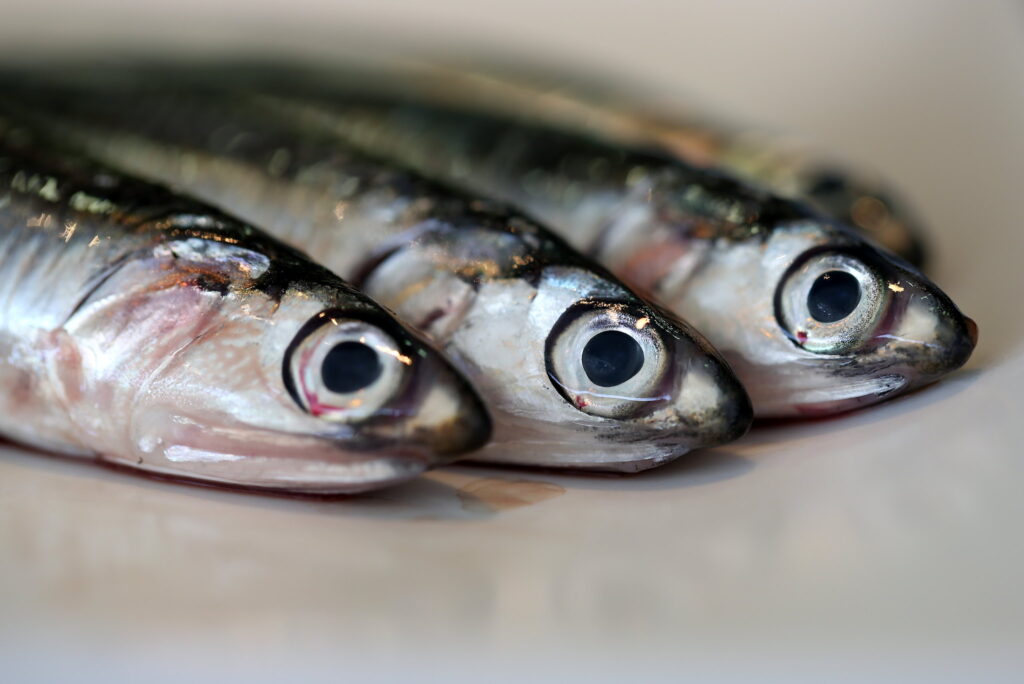Mackerel slips further down the sustainability scale in latest ‘good fish guide’

Mackerel is under immense pressure from overfishing, conservationists warned, as they lowered its rating in the latest sustainable fish guide.
The Marine Conservation Society (MCS) has updated its Good Fish Guide, which uses a traffic light system for consumers, along with a one to five scale for businesses, to highlight seafood which they say is sustainable to eat – although detractors have long argued that the charity should be saving all sea life and promoting a vegan diet.
The charity warns that once-sustainable mackerel is in “such decline” that Northeast Atlantic stock caught by midwater trawl – which makes up most of what supermarkets and restaurants sell – has been downgraded from a three to a four, recommending businesses do not source it.
Mackerel caught in the Northeast Atlantic by hook and line moves down from a two to a three in the ratings.
The Marine Conservation Society first took mackerel off the “best choice” list, downgrading it from green to amber, two years ago, due to overfishing.
Now it is warning that mackerel numbers are reaching breaking point.
Overfishing
The charity said that although some management measures are in place, countries including the UK, Norway, Iceland and the Faroe Islands are all fishing the stock but there is no overall management plan across the fishery to prevent overfishing.
The catch limits set by countries have consistently exceeded scientifically recommended levels by between 5% and 80% since 2009, and in the past four years, the total allowable catches were on average 39% higher than the scientific advice, the MCS said.
Although the amount of mackerel caught has typically fallen below the catch limits, they have still exceeded recommended levels by an average of 23%, or 188,410 tonnes, the charity said.
The conservationists called for countries to work together to develop a strategy that leads to the recovery of the mackerel stock.
And they recommend consumers look for herring from the North Sea and eastern English Channel as a sustainable alternative, or opt for sardines from Cornwall which have been certified by the Marine Stewardship Council.
Alice Moore, Good Fish Guide manager at the MCS, said: “It’s deeply concerning to see a source of seafood that was once a sustainable choice in such decline.
“Mackerel is under immense pressure from fishing activities across multiple nations, and the stock will soon be no longer able to sustain itself.
“We’re witnessing a steady decline in numbers, and they are nearing a breaking point.
“Immediate action must be taken by the UK Government to work with other nations to align catch limits with scientific advice.”
Sustainability
An Environment Department (Defra) spokesperson said: “Sustainability is at the heart of our approach to supporting the UK fishing industry and to our international negotiations.
“We have already taken action with Norway and the Faroe islands to reduce fishing pressure on the North East Atlantic mackerel stock.
“We continue to work closely with the other coastal states, including the EU, to reach an arrangement that will ensure the most productive and sustainable management of the stock possible.”
Under the Good Fish Guide, which is updated twice a year, seafood is rated depending on where or how a species is caught or farmed, with the one and two grades coded green for the best choice options, while fish are amber-listed and given a three or four rating for improvements needed.
Those rated worst, with a red traffic light and a five-rating, are classed as “fish to avoid”, while the MCS recommends businesses such as supermarkets and restaurants do not sell fish rated lower than a three.
This spring’s Good Fish Guide update also sees monkfish caught in the North Sea move from amber to green – becoming a “best choice” fish – and blue marlin off the red list, from a five to a four, due to what the charity describes as a “slight improvement” in fishing pressure.
Farmed ratings remain the same, with certified responsibly produced basa and tilapia still green rated, and farmed bluefin tuna remaining red rated, the MCS said.
Support our Nation today
For the price of a cup of coffee a month you can help us create an independent, not-for-profit, national news service for the people of Wales, by the people of Wales.





